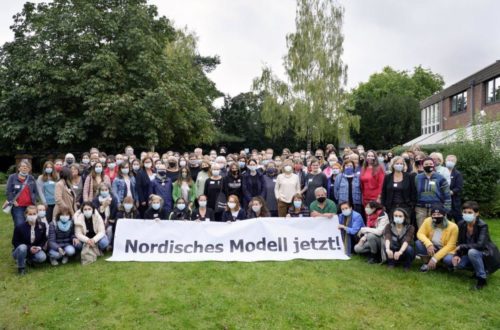The gulf between them: What Gulf countries can learn from Iran’s approach to Iraq
Key take-aways:
- Iran adopts a strategically pragmatic approach to Iraq, cooperating widely to maximise its influence while working hard to retain vital Iraqi economic support, especially vis-à-vis its rivalry with the US.
- In contrast, Arab Gulf states’ approaches to Iraq have been stop-start – although Iraq’s own weak governance also contributes to this.
Europeans should encourage Arab Gulf states to act more strategically on Iraq by strengthening their ties in the country. An Iraq that has diverse regional relationships is more likely to be stable and secure, in line with European interests in the Middle East.
The Arab Gulf states are leagues behind Iran in the scale, scope, and significance of their relations with Iraq. These states remain cautious about investing heavily in Iraq, fearing that their engagements will be derailed by Iranian-backed actors. Meanwhile, Iran has extensive political, economic, security, and cultural ties throughout Iraq.
In a new report - The gulf between them: What Gulf countries can learn from Iran’s approach to Iraq – by the European Council on Foreign Relations, Nussaibah Younis argues that the Arab Gulf states have an opportunity to differentiate themselves from Iran in the eyes of the Iraqi public. Drawing on interviews with Iraqi and regional analysts, political leaders, and advisers, the author concludes that a diversification of Iraq’s regional relationships would support European efforts to stabilise the country and insulate i from regional conflicts. It could also support wider regional de-escalation efforts as demonstrated by recent Iraqi-mediated talks between Iran and Saudi Arabia.
European states have an interest in encouraging long-term-strategic relations between the Arab Gulf states and Iraq. They are committed to supporting Iraq’s stability, security, and economic sustainability and strengthened Iraqi relations with the Arab Gulf states would contribute to those goals.
Ultimately, the Gulf states need to adopt a more resilient approach to Iraq that divorces their approach to Iraq from their policies on Iran and reduces their reliance on the US to protect their security interests.
- Focus on Iraq’s sovereignty and stability: Europeans should not see encouraging greater Arab Gulf engagement with Iraq as a means of confronting Iran but as a means of assuring Iraq’s sovereignty and stability, and of insulating it from regional rivalries.
- Encourage investment and cooperation: Europeans can seek to persuade the Arab Gulf states to escalate their economic and security cooperation with Iraq, to invest far more heavily in cultural and public-facing investments in the country, and to refrain from funding individual Iraqi political actors and parties.
- Joint investment projects: European states can also address Arab Gulf states’ hesitancy to invest in Iraq by developing joint investment projects with them. Arab Gulf states may also benefit from European technical assistance to identify promising areas for economic cooperation in Iraq.
The author of the paper, Nussaibah Younis, states:
“The Arab Gulf states have an opportunity to build sustainable long-term relations with Iraq. Strengthening Iraq-Gulf relations also creates opportunities for Iraq to play a positive regional role, including by mediating between Arab Gulf states and Iran.”
The European Council on Foreign Relations (ECFR) is a pan-European think-tank that aims to conduct cutting-edge independent research in pursuit of a coherent, effective, and values-based European foreign policy. With a network of offices in seven European capitals, over 60 staff from more than 25 different countries and a team of associated researchers in the EU 27 member states, ECFR is uniquely placed to provide pan-European perspectives on the biggest strategic challenges and choices confronting Europeans today. ECFR is an independent charity and funded from a variety of sources. For more details, please visit: www.ecfr.eu.
The European Council on Foreign Relations does not take collective positions. This report, like all publications of the European Council on Foreign Relations, represents only the views of its authors.
European Council on Foreign Relations (ECFR)
Unter den Linden 17
10117 Berlin
Telefon: +49 (30) 32505100
http://www.ecfr.eu
E-Mail: ana.ramic@ecfr.eu
Telefon: +49 (30) 3250510-27
E-Mail: communications@ecfr.eu
![]()




